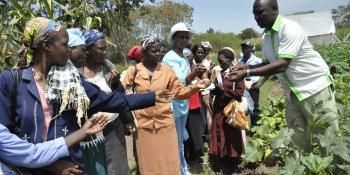Celebrating women farmers in Nyando: transforming lives through climate-smart agriculture
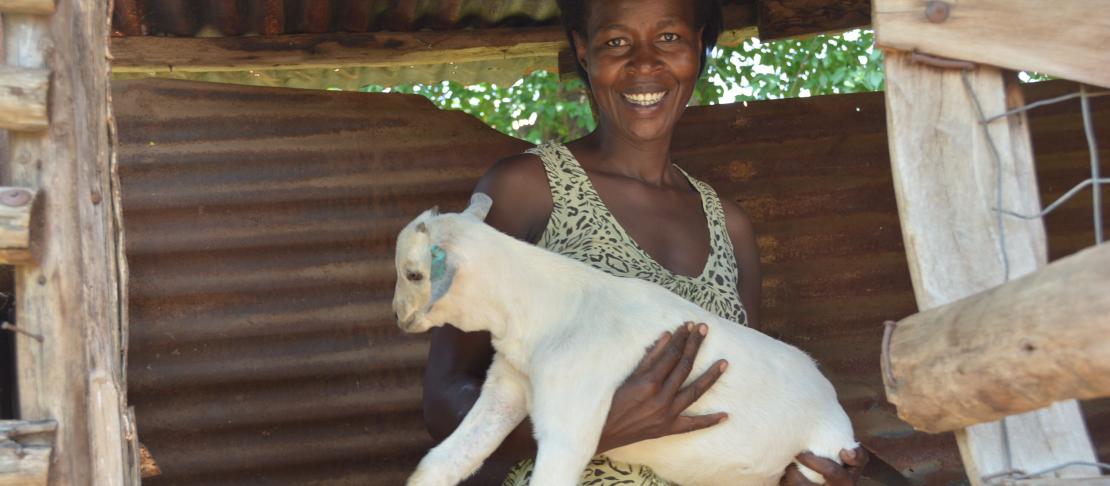
Empowering farmers: four inspiring stories of Nyando women bringing about change
Today is International Women’s Day, and the campaign theme is #BeBoldForChange, forging a more inclusive gender equal world.
Empower a woman, empower nations, so goes the common saying.
Nyando, a conservative society, is a rich agricultural flood plain around Lake Victoria in Western Kenya. Most households in Nyando are headed by women and food insecurity is a major challenge. As of 2011, 81% of the families experience 1-2 hunger months in a year, while 17% of the families experience 3-4 hunger months; a period when the household has difficulty getting food from any source. During the dry season, rivers in Nyando often run dry, requiring women to walk long distances for water.
Since 2011, the CGIAR Research Program on Climate Change, Agriculture and Food Security East Africa (CCAFS EA) has been training women farmers on sustainable agricultural practices and climate-smart interventions. There are three active community-based organizations (CBOs) - Friends of Katuk Odeyo (FOKO), NECODEP, KAPSOKALE. These CBOs cover 106 villages in Nyando, and more than 70% of the active members are women. As a result of the trainings, there have been several changes in the community and these include women starting small businesses, earning an income and making enough money to send their children to secondary school, something that was not happening before the targeted capacity building initiatives and empowerment.
To celebrate the International Women's day, we highlight stories of four women farmers who are making a difference in their communities and inspiring other women.
1. Mercyline Atieno – Poultry farmer benefiting from innovations funds
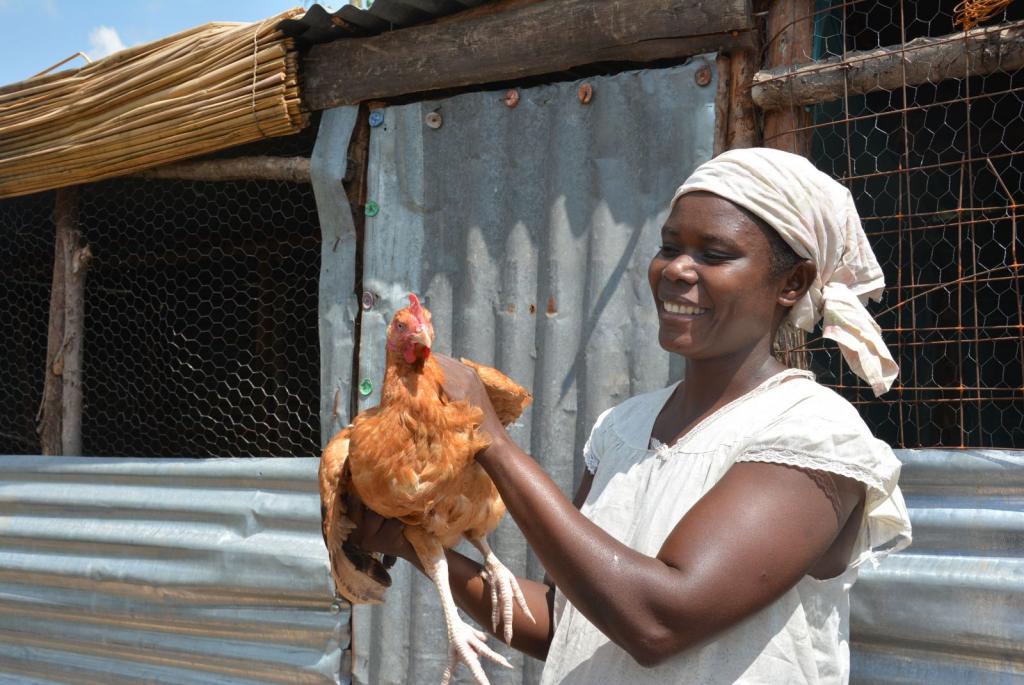
Mercyline Atieno, a poultry farmer in Nyando shares on how she has benefited from the innovation funds initiative. Since 2015, she joined the NECODEP CBO and borrowed money from the innovation funds to start her poultry business. She has always wanted to be self-employed, and her dream came true – she has increased the number of poultry owned and sold over 200 chickens.
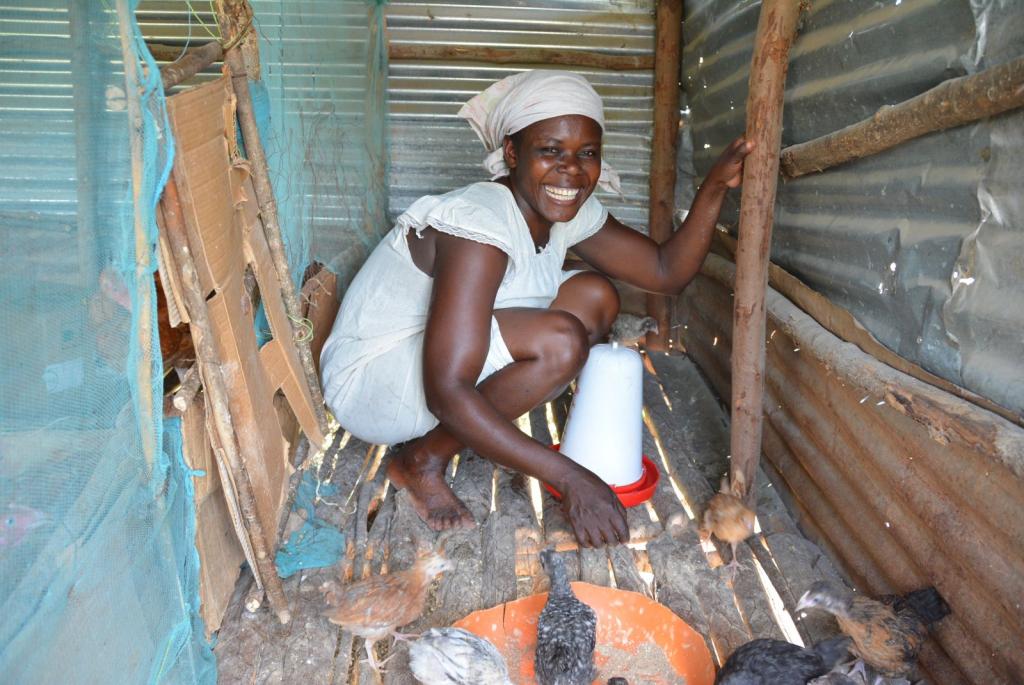
“I needed to improve the housing for the chicken and only had a few building materials. I got a loan from the NECODEP through the innovation fund and I was able to build a house. I started with ten chickens, I took my eggs to the hatchery and currently I have more than 50 chickens and I have sold more than 200”
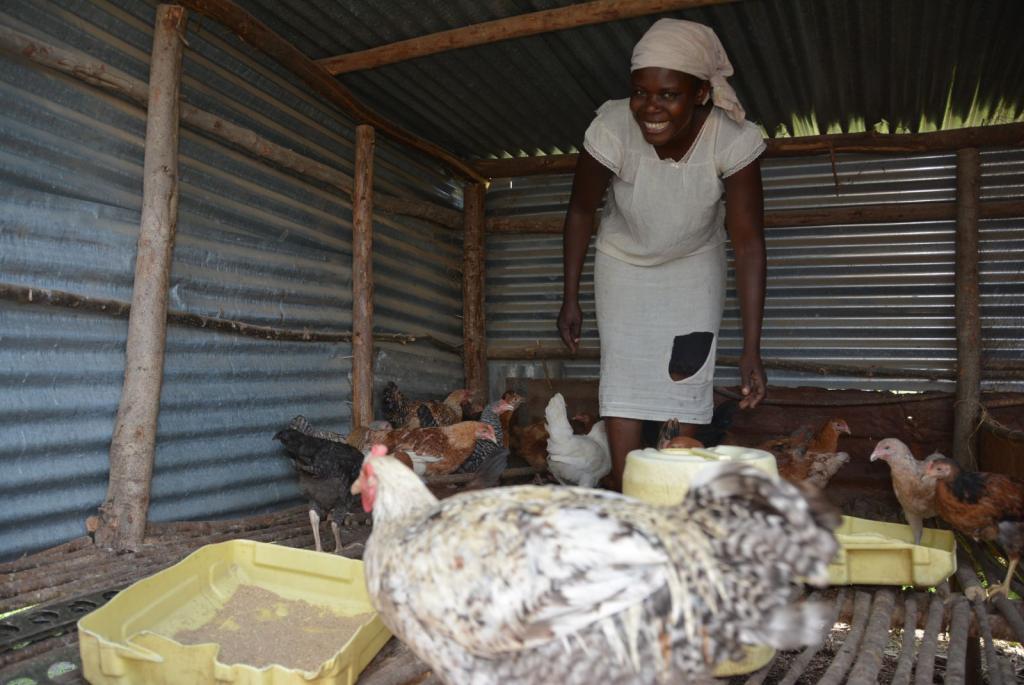
With just an investment of KES 10,000 (USD 100), Mercyline now sells eggs and chicken to her neighbors and gets a profit of about USD 100 a month. Sometimes she faces challenges like drought and Newcastle disease, but that has not been a reason for her to stop doing her business.
The community innovation funds have helped women farmers access loans at affordable interest rates to invest in new crops, improved crops varieties and livestock enterprises. When the program started, 17 groups in Nyando with membership from 306 households were operational and have been able to save nearly USD 69,500. Borrowing from the facility has reached 90% and most household use the loans to purchase food, procure farm inputs, pay school fees and set up small businesses.
Mercyline now works at the community hatchery, where she grades eggs and monitors them till they hatch.
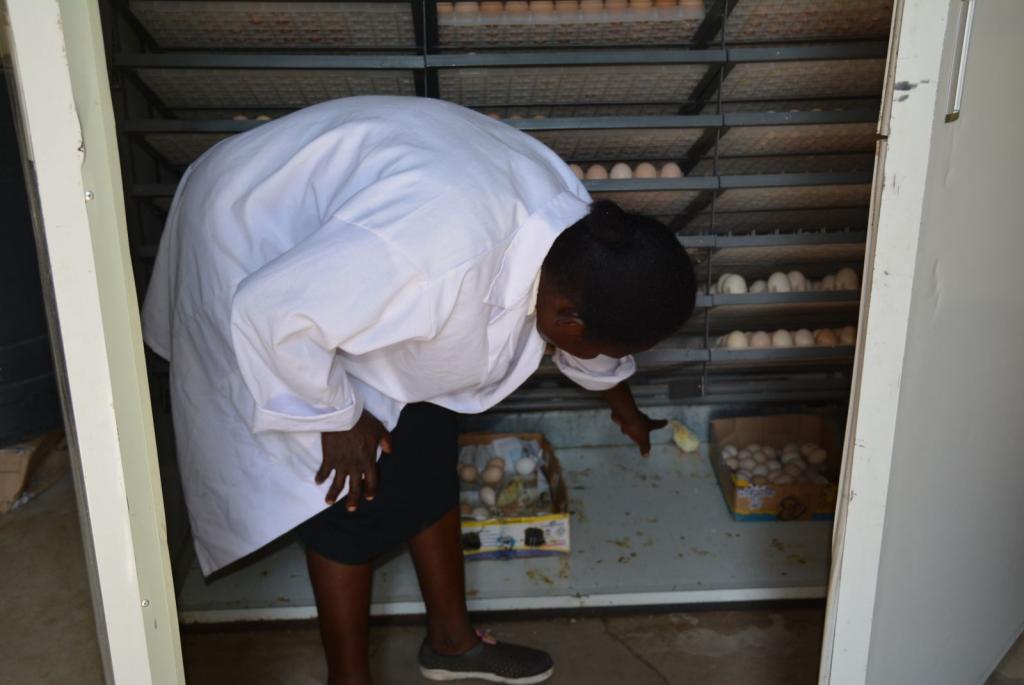
2. Catherine Akinyi – Obinju Smart Farm
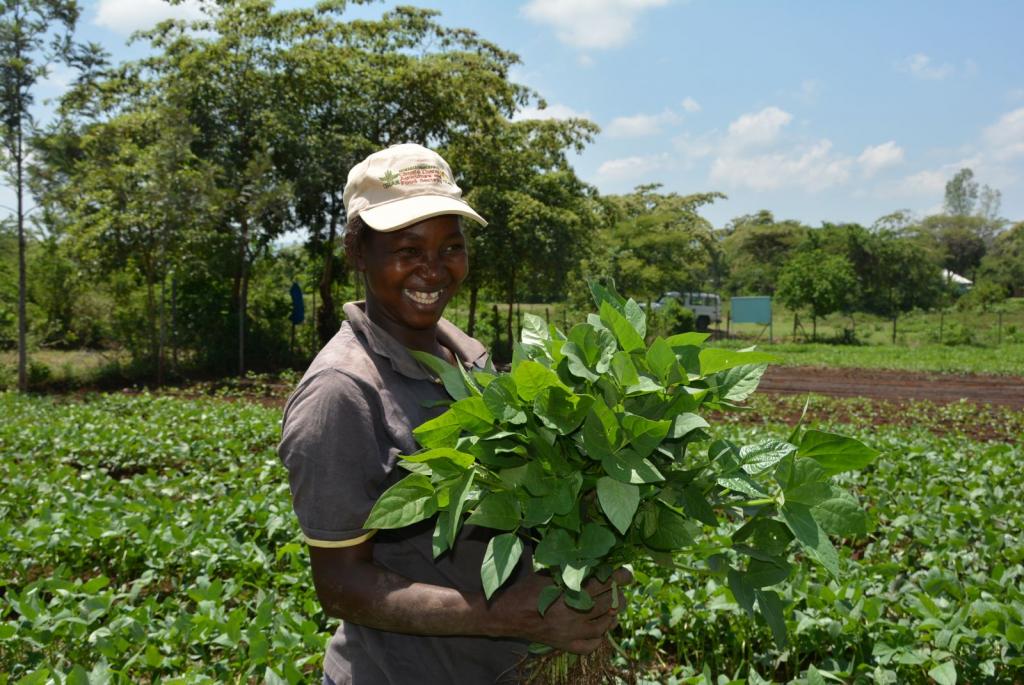
Catherine is the chairwoman of Obinju Smart Farm Group. The smart farm comprises of a greenhouse - which is free from flooding and drought, and is used for seed bulking of fodder for livestock, and growing horticultural crops. The smart farm also has two water pans with a total capacity of over 250,000 litres having over 1,000 tilapia fish. The group is also involved in producing sorghum, maize and bee keeping.
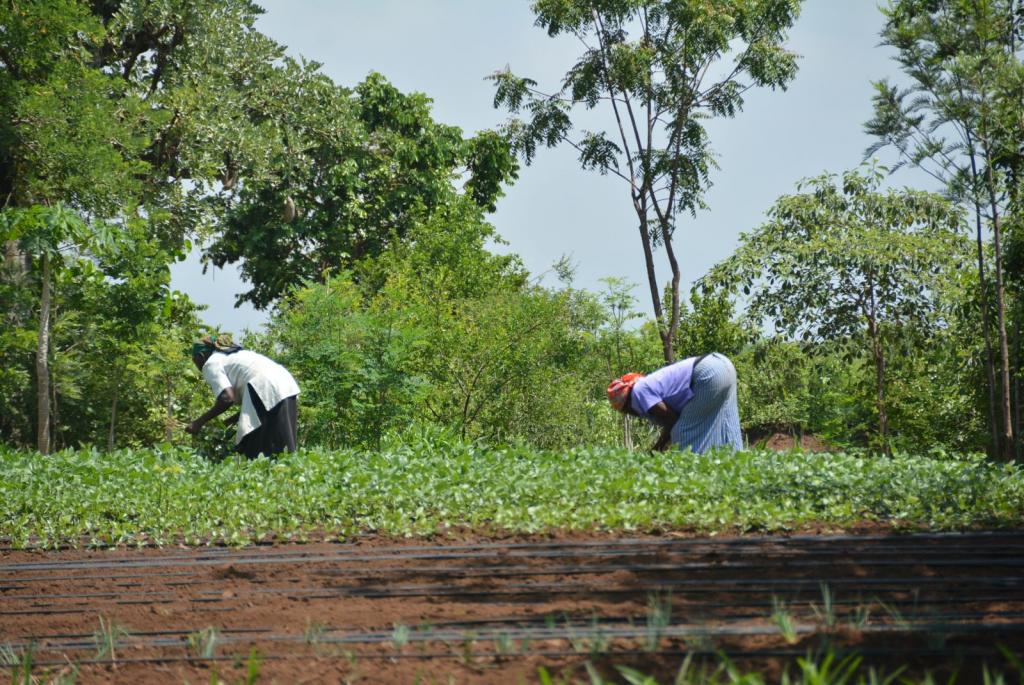
“Since we started this smart farm, we have never lacked food. We always have vegetables to sell and food to eat in our homes.”
The group started more than 5 years ago as a women's group, and used to plant trees. With the help of CCAFS, they now grow improved varieties of crops. After men saw how successful the women were, they joined the group.
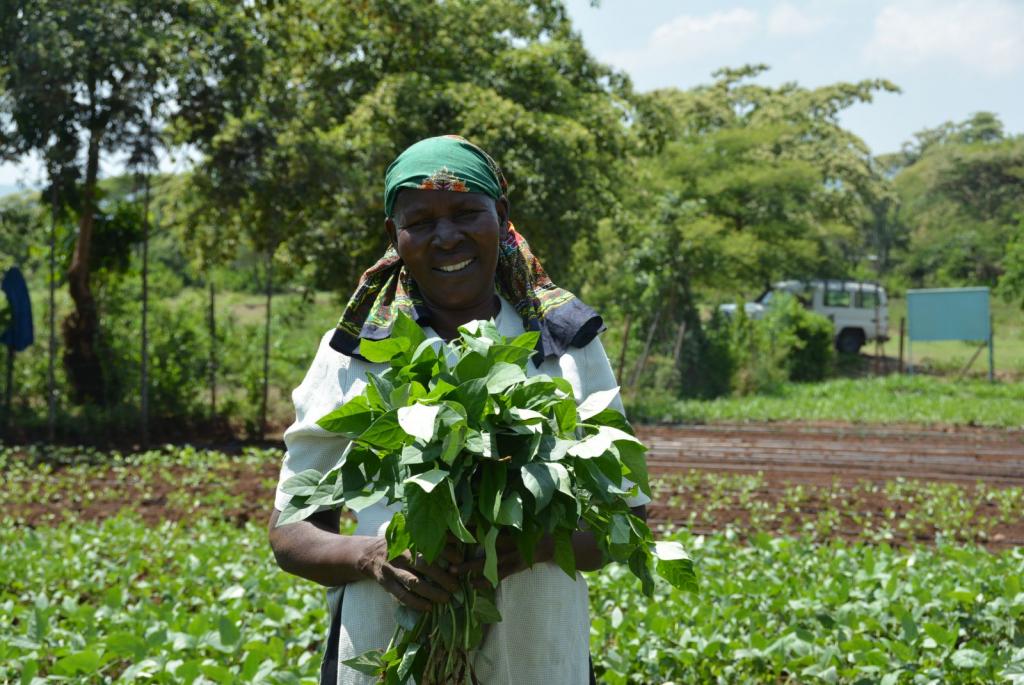
The women save profit from selling their produce in a group bank, locally known as 'table banking’. At the end of each month, they divide the profit among themselves, each member can get up to KES 25,000 (USD 250).
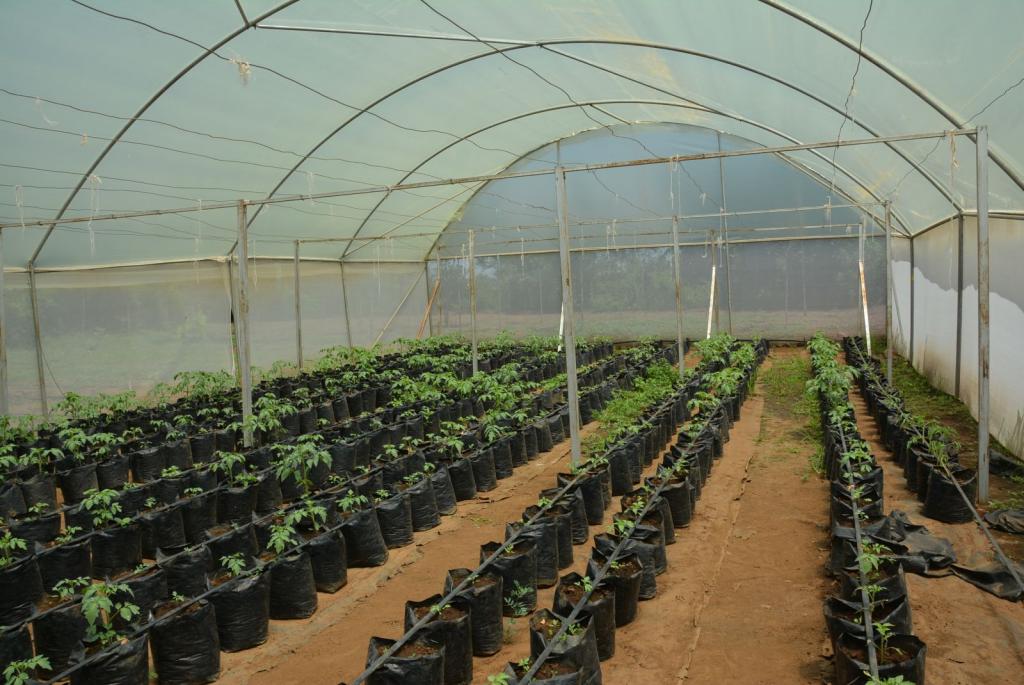
“I used to find it very hard to ask for money from my husband before, but I now have money. I can now convince my husband to do farming as he can also see the good returns.”
The farm serves as a demonstration site for women groups to engage in climate-smart agriculture.
3. Dorothy Achieng – Small Ruminants Livestock Farming
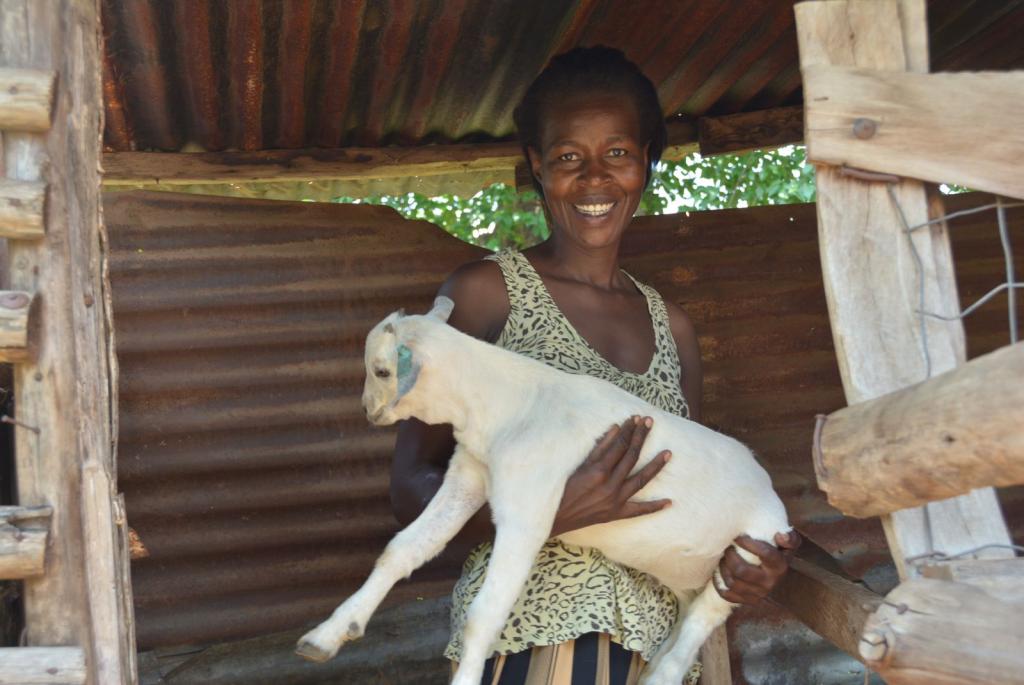
“I am a happy woman,” says Dorothy, “my life changed since I started keeping sheep and goats”.
Dorothy Achieng is married to Joshua Omolo, NECODEP CBO chairman. She has been practicing livestock keeping for two years now and has a total of seven goats and eight sheep.
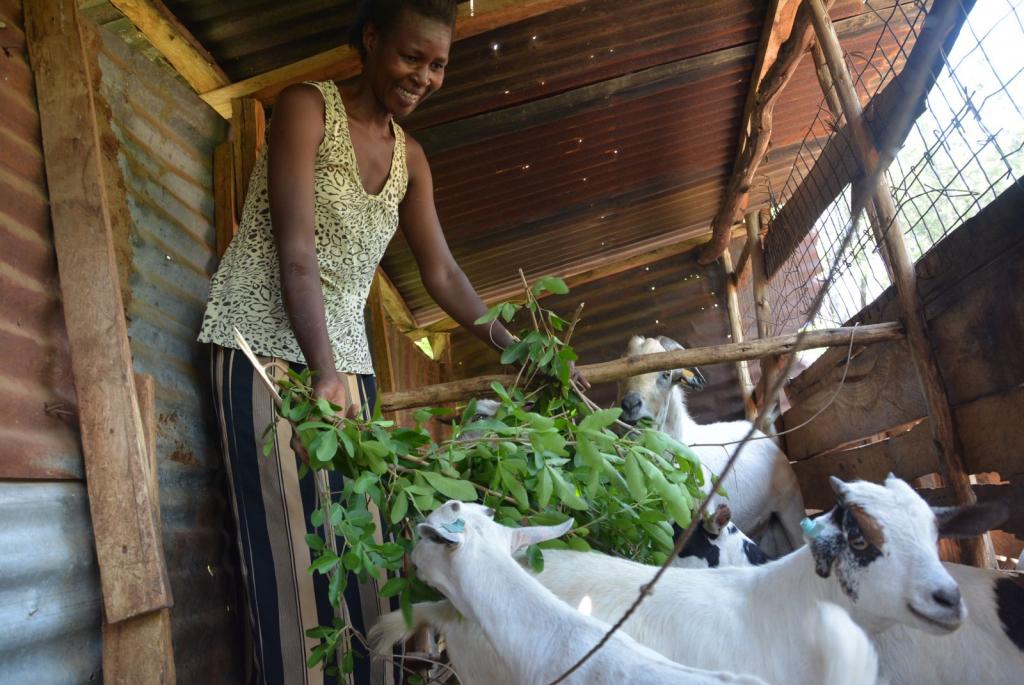
“I sell the sheep and goats to local farmers in Nyando. I also sell goat milk and I can can now easily pay school fees for my children.”
Being less labor intensive, Dorothy is able to take care of the livestock as well as manage other household responsibilities. The improved breed of sheep and goats grow very fast, and fetch higher market prices of upto KES 5,000 (USD 50).
“The milk is very nutritious. Am I not healthy?” she asks.
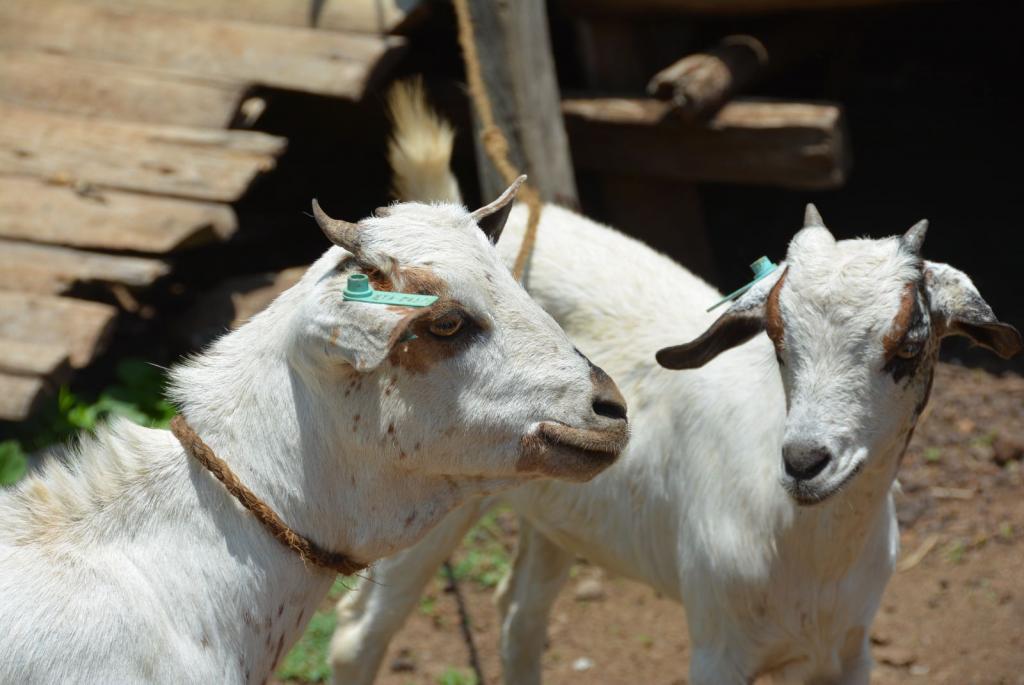
Women have full control over the small ruminants which they can sell without seeking authority from the husbands unlike cows which can only be sold by men. CCAFS has been collaborating with World Neighbors, Vi Agroforestry and Kenya’s Ministry of Livestock Development to work with farmers to improve productivity of small ruminants (sheep and goats). Overall, about 120 households in Nyando are now benefiting from interventions on small livestock. Of these households, 70% are headed by women.
Dorothy is encouraging fellow women to get into small ruminant livestock production as it is not labor intensive and the production cost is low. She would love to teach other women about it.
4. Pauline Omondi – Water Harvesting
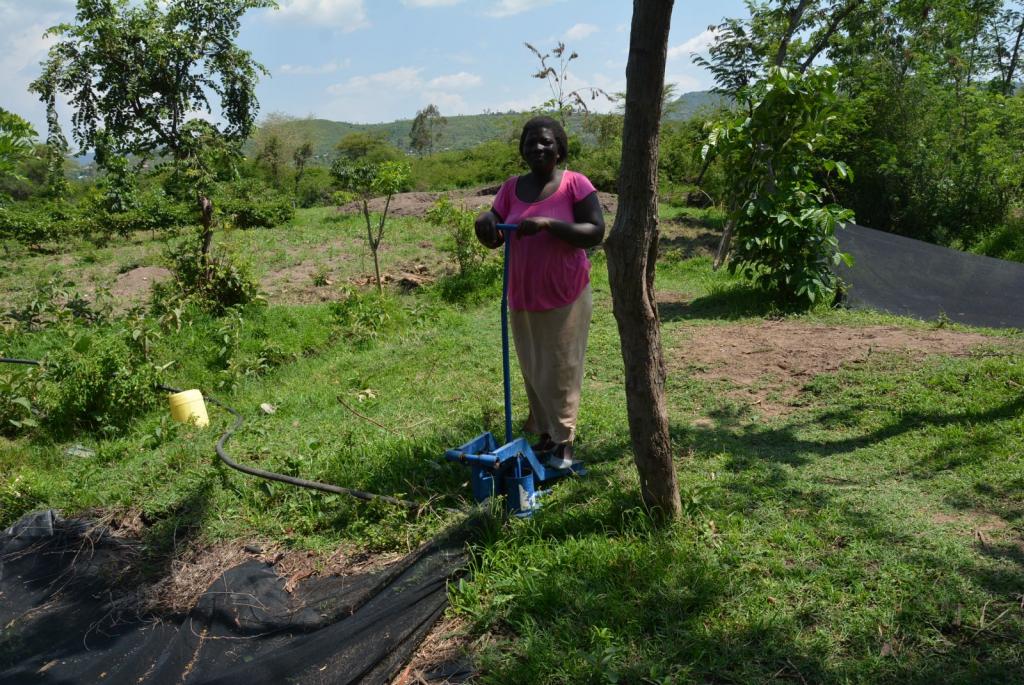
Pauline Omondi has four water pans and also practices soil conservation. The water pans have a capacity of more than 84,000 litres that meet her water needs during the dry season.
“The water pans are everything, I have irrigated my farm and used it for my household’s chores. I can do everything I want to do in the farm.”
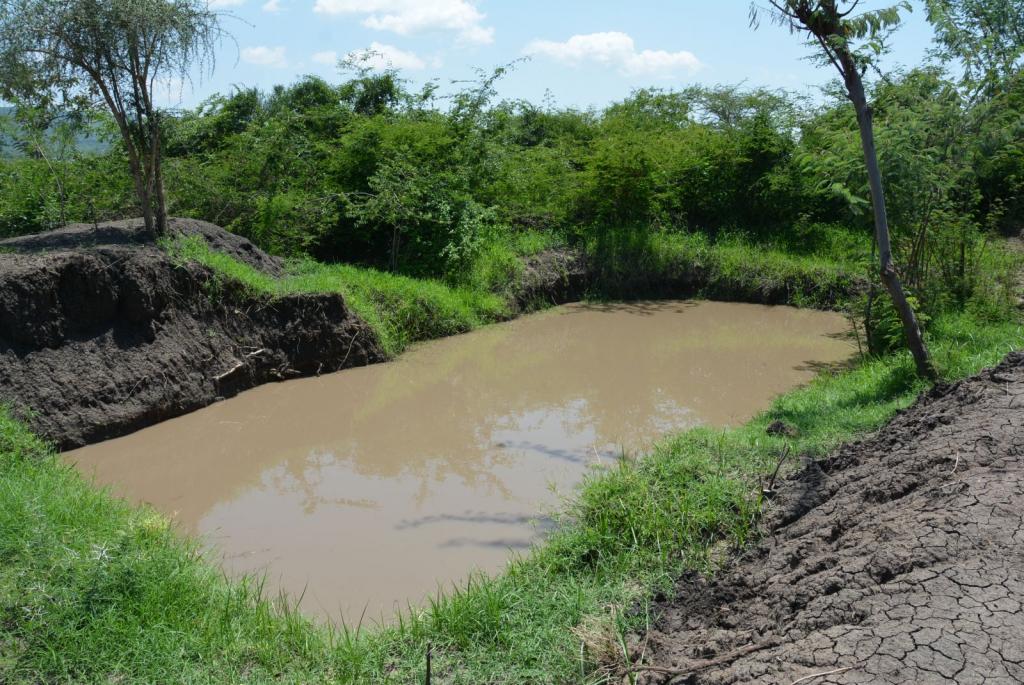
Pauline has also constructed terraces to control soil and water movement on her farm. On the terrace, she has planted fruit trees which has increased her annual income. She also keeps and sells mad fish after every three months.
“I am not scared as my family will never lack food.”
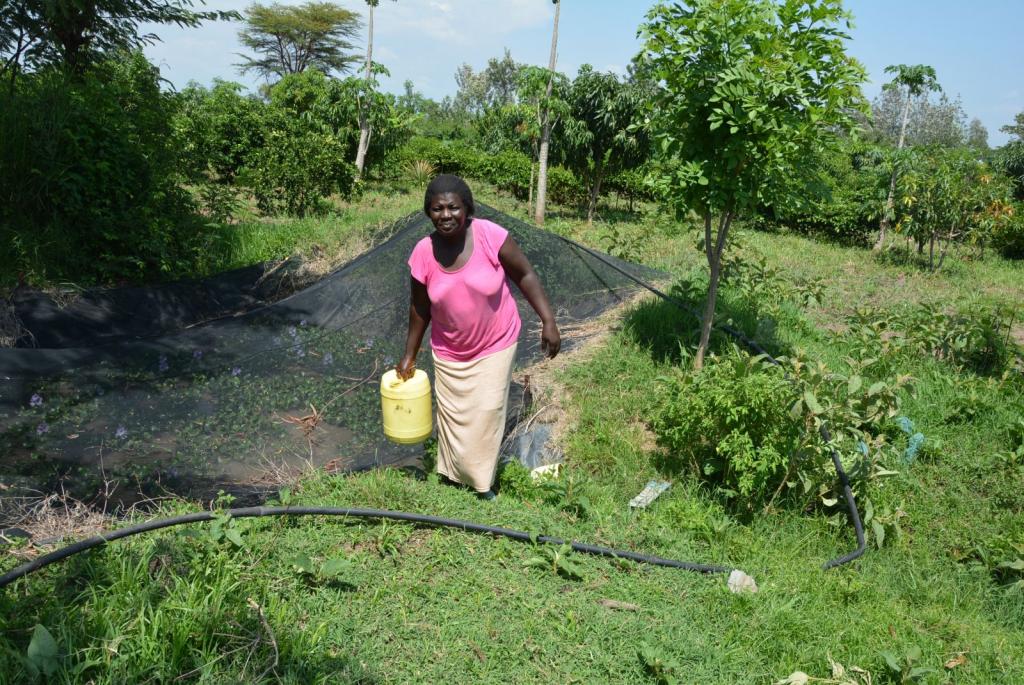
“Most women in the area give up after the water pan has dried. During droughts and dry season, I divert water from the river to the water pans.”
Pauline advises that women should be trained on how to use and depend on water pan. “Despite the challenges, I have persisted in farming and increased my harvest every year.“
Partners working in the Nyando Climate-Smart Villages include Kenya Agricultural and Livestock Research Organization (KALRO), the Ministry of Agriculture, Livestock and Fisheries (MALF), Magos Farm Enterprises, Maseno University, County Government of Kisumu, Vi Agroforestry and Thin Qubator Aquaculture.
Read more
- Blog: Empowering women farmers to feed the world
- Blog: Gender, power and climate information in Nyando, Kenya
- Blog: Improving the adaptive capacity of women farmers in Western Kenya
See more photos of the inspiring women farmers:
Photos taken by Tabitha Muchaba (CCAFS).
Tabitha Muchaba, Maren Radeny and Catherine Mungai work at CCAFS East Africa. Caroline Odera is a consultant working with women in Nyando Climate Smart Village.



